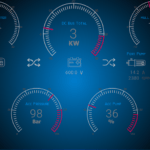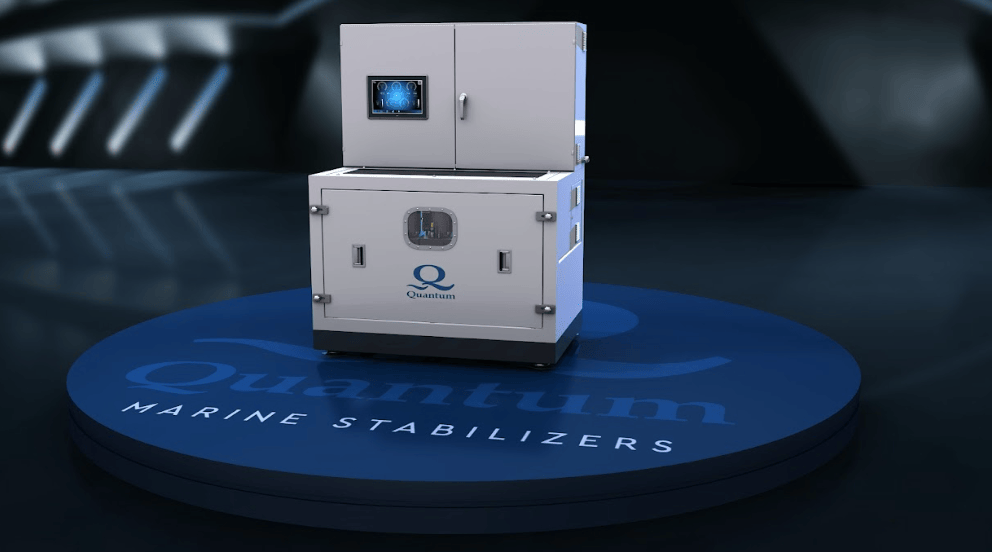
Hybrid stabiliser to ‘redefine’ industry, claims Quantum

After almost five years in development and eight months of intense testing, the first F45 system has been installed on a 47m Feadship refit. Its creator, Quantum, says the new electric/hydraulic hybrid power system will redefine the marine stabiliser industry, advancing the sustainable initiatives in the yachting industry.
“We are dramatically reducing the amount of energy required to operate one of the biggest power consumers by 60 – 80 per cent, that represents enormous benefits to the environment and the operating costs. A win for the industry,” says John Allen, CEO Quantum Marine Stabilizers.

Stabilisers, particularly at zero speed, are big consumers of power with an operational profile that often generates large power fluctuations, causing a strain on the generators and the power grid. The F45 dramatically reduces stabiliser power consumption without the use of potentially dangerous batteries, says Quantum.
A traditional hydraulic power unit, though a typical power source for the 60m+ market, will continuously draw 40 per cent of the maximum power, even when it is not needed, so there is a lot of wasted energy. The F45, suitable for 45m+ vessels, drops to less than 1kW, while in standby mode.
The new patent-pending F45 system uses the best attributes of a traditional hydraulic power unit and the cleaner advantages of a direct electric drive system. Thus it represents a big step forward in marine stabilisation, especially for those concerned about carbon footprints, energy conservation, noise / vibration and low heat generation, the company believes. It says results from the first sea trial this June were impressive, with efficiencies for zero speed and underway, better than expected.
The F45 has the capability to manage power fluctuations, as well as store and recover power through a proprietary solution, called MESS (Mass Energy Storage System). This flywheel-based technology has the ability to outstrip traditional capacitor banks by a power density of eight times. Furthermore, any excess energy from fin deceleration (zero speed) or hydrodynamic force (underway) can be recovered and stored for future use through dynamic energy recovery.
Quantum has been engineering and manufacturing stabiliser systems for the yachting industry for nearly four decades. It currently has four global patents: XT Fins, MAGLift Rotors, Dyna-Foil and Dynamic Load Control with three more patents pending.
A report at near the end of 2023 predicted that the marine fin stabiliser market will grow significantly over the next decade. The study, by market research firm Future Market Insights, projected that the marine fin stabiliser market will grow at a compound annual growth rate (CAGR) of 12.1 per cent from 2023 to 2033, reaching a value of around US$26.1bn.
The post Hybrid stabiliser to ‘redefine’ industry, claims Quantum appeared first on Marine Industry News.
